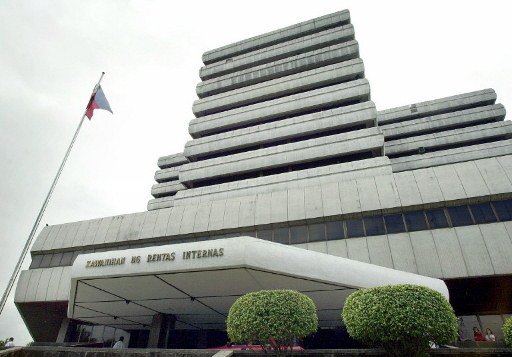BIR plans cap on assessment changes, Dulay says amid Del Monte issue

Bureau of Internal Revenue. INQUIRER FILE PHOTO
The Bureau of Internal Revenue (BIR) is set to come up with rules to prevent occurrences of large discrepancies between the assessment of tax liabilities and the amount actually collected from corporate taxpayers.
In order to do this, the BIR plans to put a cap on the percentage of the preliminary tax assessment that may be dropped later on.
BIR Commissioner Caesar Dulay revealed this during the House of Representatives ways and means committee inquiry on the reduction of Del Monte Philippines Inc.’s tax deficiency taxes for the years 2011 to 2013.
“The comment we got is why we have the assessment so high and then we drop it,” Dulay told lawmakers on Tuesday. “We’d like to put a threshold – probably, it’s up for discussion among us – on the percentage of the assessment that is being dropped.”
Dulay added that the BIR would also come up with a draft revenue regulation to address concerns about the removal of the “notice of informal conference.”
The said stage used to be the venue for taxpayers to explain their side regarding the preliminary findings of revenue examiners, before they are assessed deficiency taxes (shortfall in payments due to several reasons including errors). The informal conference was scrapped by the BIR in December 2013.
Ways and means committee chairman Rep. Dakila Carlo Cua, however, told Dulay that the issue with Del Monte is “not really limiting the assessment, but taking accountability for assessment work that people [in the BIR] do.”
“They can assess 10 to 20 billion, but they have no accountability if they did their work correctly,” Cua said. “If you cap it, it’s like killing the revenue potential of the government.”
Dulay conceded the point and said revenue officers “should be able to explain why the drop is so big.”
The congressional inquiry was launched after taxpayer Danilo Lihaylihay filed a plunder complaint before the Office of the Ombudsman against Dulay and other BIR officials for the discrepancy in Del Monte’s payment of its taxes, claiming the government lost P29 billion in revenues.
Cua’s presentation, however, showed that BIR issued preliminary assessment notices for the years 2011 to 2013 totaling P8.8 billion, but these shrank steeply as the taxation process went on and Del Monte ended up paying only P65.42 million for the three years last Feb. 1.
For the year 2011, the preliminary assessment notice amounted to a modest P15 million; Del Monte settled this without contesting the assessment. For the year 2012, the PAN suddenly grew to P3.44 billion in deficiency tax. The formal letter of demand, however, dropped to P20.03 million, and this was paid by Del Monte.
For the year 2013, the PAN assessed an even larger amount of P5.35 billion, and reduced slightly to P5.27 billion in the stages of the FLD and the final decision on disputed assessment. Yet, Del Monte was able to pay only P30.39 million for the said year.
Cua estimated the discrepancies to range from 98 to 99 percent. But, the lawmakers were inclined to dig deeper into the BIR’s processes to explain the discrepancies.
For one, Cua stressed the factual bases of assessments and changes have to be sufficiently explained.
Puwersa ng Bayaning Atleta Rep. Jericho Nograles pointedly asked Del Monte chief operating officer Luis Alejandro: “Hinoldap ba kayo (Were you held up)?”
Alejandro graciously said no. He instead explained the preliminary assessments were originally inflated because the BIR had earlier failed to fully account for the tax incentives Del Monte received as a registered entity of the Philippine Economic Zone Authority.
Nograles, however, said the dual tax regimes for PEZA-registered entities end up presenting a problem because of the complex tax computations.
“You would be targeted naturally when the government has shortfalls, especially with the previous tax administration that covers up for tobacco,” he said. /atm
